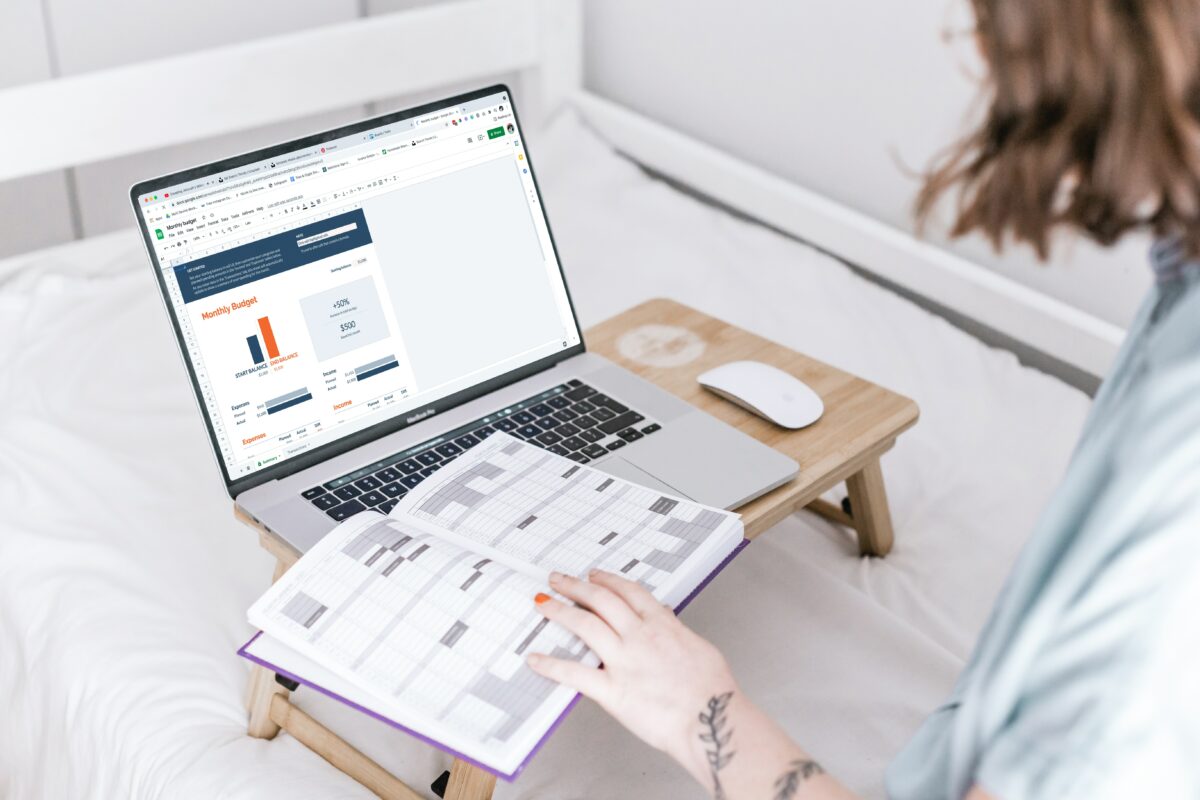In today’s fast-paced world, personal budgeting has never been more critical. It’s not just about managing your finances; it’s about creating a solid financial plan that empowers you to achieve your financial goals, whether it’s buying a home, saving for retirement, or simply gaining peace of mind. In this article, we’ll explore the art of personal budgeting, give you a roadmap to create your budget and provide some personal budgeting tips to get you started.
The Importance of Personal Budgeting

Before delving into the details of creating a financial plan, let’s discuss why personal budgeting matters. Many people view budgeting as a restrictive exercise, but in reality, it’s a tool for financial freedom and security. Here’s why it’s essential:
Financial Control
Budgeting provides you with a clear picture of your income and expenses, allowing you to take control of your finances. You can identify areas where you can cut back on spending and allocate more resources to your financial priorities. For those dealing with debt, a budget can be a powerful tool for managing and paying off debt systematically. It helps you allocate extra funds towards debt repayment.
Goal Achievement
A well-structured budget helps you allocate funds toward your financial goals, whether it’s paying off debt, saving for a vacation, or investing for the future. It turns your aspirations into actionable plans.
Emergency Preparedness
Budgeting also includes setting aside funds for emergencies. Having an emergency fund can provide a safety net when unexpected expenses arise, preventing you from going into debt. Knowing where your money is going and having a plan for the future can significantly reduce financial stress. It provides peace of mind, allowing you to focus on other aspects of life without constantly worrying about money.
Creating Your Personal Budget
Now that we understand the importance of personal budgeting, let’s dive into the steps to create a solid financial plan.

1. Calculate Your Income
The first step in creating a budget is to determine your monthly income. This includes your salary, any side income, rental income, or any other sources of money coming in each month. Be sure to use your net income (after taxes) for accuracy.
2. List Your Expenses
Next, list all your monthly expenses. These can be categorized into fixed expenses (consistent month to month) and variable expenses (fluctuating month to month). Common fixed expenses include rent or mortgage, utilities, insurance premiums, and loan payments. Variable expenses may include groceries, entertainment, dining out, and transportation costs.
3. Set Financial Goals
Identify your short-term and long-term financial goals. Short-term goals might include paying off credit card debt or saving for a vacation, while long-term goals could involve saving for retirement or buying a home. Having clear goals will guide your budgeting efforts.
4. Allocate Funds
Allocate funds to cover your expenses while ensuring you have money left over to put towards your financial goals. If your expenses exceed your income, you may need to adjust your spending or consider increasing your income.
5. Emergency Fund
Make building an emergency fund a priority. Aim to save at least three to six months’ worth of living expenses in a separate savings account. This fund will provide peace of mind in case of unexpected events like medical emergencies or job loss.
6. Debt Repayment
If you have debt, allocate extra funds towards paying it off. Focus on high-interest debts first, as they cost you the most in the long run. Once one debt is paid off, roll the payment amount into paying off the next debt.
7. Regularly Review and Adjust
Your budget is not set in stone. Regularly review your income and expenses to ensure you’re staying on track. Life circumstances can change, and your budget should adapt accordingly.
Personal Budgeting Tips

To enhance the effectiveness and sustainability of your budgeting endeavors, you may want to explore several additional strategies. Embracing technology can significantly streamline your financial management.
There is an abundance of budgeting apps and software tools readily available, designed to automate the tracking of your income and expenses. By employing these digital aids, you not only save time but also gain valuable insights into your spending patterns, enabling you to make informed financial decisions.
Furthermore, a fundamental principle of successful budgeting lies in setting realistic expectations. When constructing your budget, it’s imperative to maintain a sense of realism concerning both your expenses and your financial goals. Overestimating or underestimating can lead to frustration and potential deviations from your financial plan. Thus, a balanced and accurate assessment of your financial landscape is paramount for your budget’s effectiveness.

For those who find budgeting to be a daunting or complex task, seeking professional advice is a prudent step. Certified public accountants (CPAs) possess the expertise and experience needed to navigate intricate financial situations.
Their tailored guidance can offer you valuable insights and strategies to help you attain your financial objectives. With the support of a financial expert, you can chart a course toward financial success with confidence and precision.
Lastly, maintaining discipline throughout your budgeting journey is crucial. Budgeting requires self-control and commitment to your financial plan. To ensure that you stay on track, it’s imperative to adhere to your budget diligently.
This means avoiding unnecessary expenditures and keeping your financial priorities at the forefront of your decision-making process. By staying disciplined, you can make steady progress toward achieving your financial goals and securing your financial future.
Take Control of Your Finances

Personal budgeting is not just about balancing the books; it’s about creating a roadmap to financial success. It empowers you to take control of your finances, achieve your goals, and secure your financial future. By following the steps outlined in this article and incorporating smart personal budgeting tips, you can create a solid financial plan that serves as a foundation for a brighter financial future. Remember, it’s never too late to start budgeting and working towards your financial dreams.









